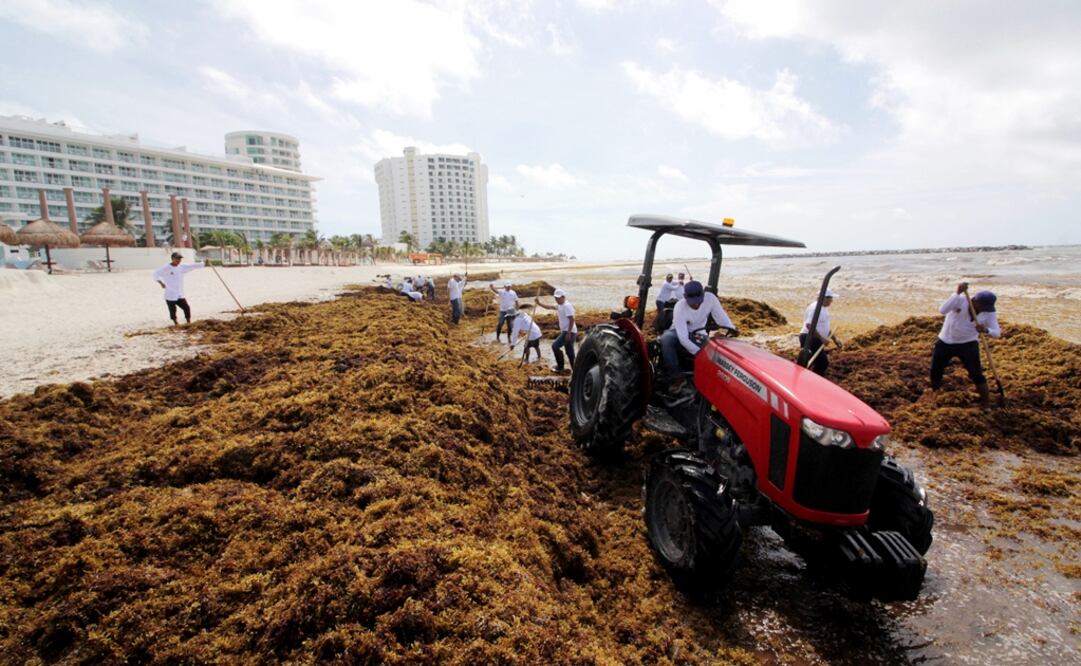This year, massive quantities of sargassum will wash up on the shores of the Mexican Caribbean , claimed the University of Florida . The investigator Brigitta Ine Van Tussenbroek warned that, should there be a seaweed plague similar to that occurred in 2018 , damages to the environment and Mexico’s tourist industry will be severe.
“We cannot begin to imagine the environment’s resilience capacity facing this sort of event, which has led to an unprecedented production of organic matter; the biogeochemical capacities of ecosystems are undergoing a complete transformation,” commented the scientist from the Reef Systems Academic Unit of Puerto Morelos , at the Institute of Maritime and Limnological Sciences of Mexico’s National Autonomous University (UNAM) .
The expert claimed that greater efforts are needed to mitigate the negative effect of this natural phenomenon. A comprehensive initiative is needed to mediate between scientific data and Mexico’s legal framework, as well as a joint operation between government bodies to establish an efficient course of action for the collection of sargassum at open sea.
The National Autonomous University stressed that, although this natural plague is known to generate major problems, it is still underestimated, and public institutions hesitate to finance risk assessment studies and control methods that offer sustainable solutions.
The UNAM clarified that the University of Florida’s monthly reports, based on floating masses at open sea, had been conducted at a large scale and were thus insufficient to determine the exact destination of the seaweed plague. More detailed and quantitative monitoring is needed to know whether the organic masses will wash up in Chetumal, Tulum, or Cancun .
Sargassum is a genus of macroalgae that is broadly distributed throughout temperate and tropical oceans . Recently, they have accumulated near Caribbean beaches as a consequence of ocean pollution.
dm
Noticias según tus intereses
[Publicidad]
[Publicidad]















